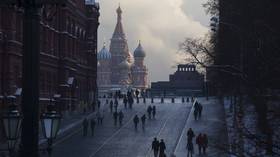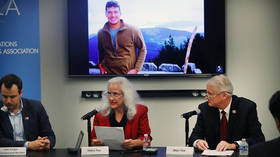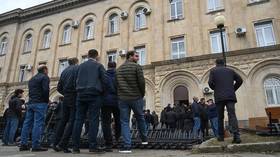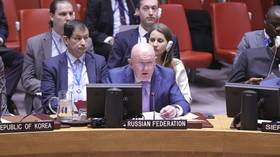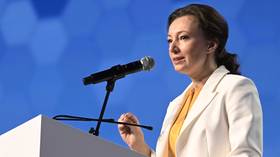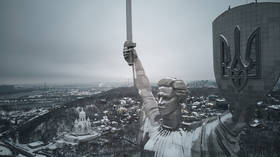ROAR: Russia attracts highly-skilled specialists

The Russian parliament has adopted in the second reading a law that should guarantee more attractive conditions for the admission and residence of highly-skilled workers.
The amended law on the legal status of foreign citizens in Russia, voted on Friday, will divide the flow of immigrants into “ordinary guest workers” and highly qualified specialists, observers said.
It may also help to attracts foreign specialists to the Skolkovo hi-tech research and business center near Moscow. President Dmitry Medvedev had suggested that the deputies should step up work to form a legal basis for the Skolkovo project. The amendments to the legislation on immigration will become the most important part of this work, media said.
The high-tech center Skolkovo will enjoy considerable privileges, such as tax holidays during a period of 10 years. The residents will be also exempt from the payment of several taxes.
Skolkovo will also get a special economic and legal status, the president said at a meeting of the commission for the economy's modernization and technological development on April 29.
The Duma Legislation Committee had recommended that the parliament should adopt a bill on foreigners’ legal status in the second reading. Both Tax and Budget codes are also being amended.
The bill in particular stipulates that high qualified foreign specialists’ residence time will not be limited by one year if a labor contract is extended. And this time may be extended to three years.
“The path to Skolkovo is being rid of obstacles for foreigners,” Kommersant daily noted. It will be easier for foreign highly-qualified specialists to get work than for ordinary guest workers, the paper said. “Deputies believe that the am amendments will help the government to attract specialists to work in Skolkovo,” it added.
Deputies busied themselves with the problems of foreigners who come to Russia to work back at the beginning of this year after the government had submitted amendments to regulate the flow of guest workers, the daily noted.
Back in February, the deputies voted almost unanimously for the bill in the first reading. The document enables the government to determine legal status and conditions of work for foreigners employed by Russian enterprises and individuals.
“As the Duma Legislation Committee was preparing the bill for the second reading, a project on the construction of the Skolkovo research innovative center near Moscow was launched,” the daily said.
New conditions forced the parliamentarians to rewrite the article 13.2 of the Law on the legal status of foreign citizens in the Russian Federation. Its initial version just listed conditions for hiring foreigners with any level of qualification.
The new version of the law determines peculiarities of work for “foreign citizens – high qualified specialists.” This provision will concern those who earn two million rubles (approximately $66,000) or more a year. However, the government will be able to decrease the salary’s threshold.
“Now a highly-qualified specialist will be able to come to Russia on special and sufficiently attractive conditions,” Kommersant said. At the same time, hiring ordinary guest workers will become possible only in the framework of quota established for a particular region.
The quotas do not concern the highly-skilled labor force, the paper noted. Their employer or customer will only have to submit an application to the migration service, accompanied by a labor agreement and a written commitment to pay expenses should the foreigner have to be expelled on some grounds.
The law stipulates that migration services are not allowed to reject such an application, as well as a petition to extend the term of a contract with a foreign specialist, the paper noted.
At the same time, the term of a working visa or work permission for ordinary guest workers will be limited by one year while this term for highly-skilled workers is three years with the right to extend it for three more years.
Highly-qualified labor force will have more privileges. In particular, they will not have to submit fingerprints and photographs to the migration service.
So far, there has been no differentiation between highly-skilled specialists and ordinary guest workers. This was not right, Federal Migration Service spokesman Konstantin Poltoranin believes. The labor and investment that people from Western Europe and the US bring us is considerable, he told Vesti FM radio.
Russia needs such specialists to develop new technology, and the country should make the conditions for them easier, giving such people green light, he noted.
The employers’ applications will be considered in less than a month by Federal Migration Service’s offices in Russia and abroad, Poltoranin said. They already work in Central Asian countries and are being gradually opened in Western Europe.
Speaking on the differentiation between the two immigration flows, the spokesman noted that the first one concerns temporary immigration of unqualified workers from the former Soviet republics. They are mainly seasonal workers who come to work in Russia’s private sector.
Now conditions for “constant immigration” are being created, Poltoranin said. This concerns highly-qualified labor specialists “who may decide during three years if they want to become Russian citizens,” he noted. To do this, it will be enough for them to file an application.
So far, Russia has not been very attractive for a foreign labor force, Trud daily said. Russia has fewer foreign specialists than European countries, the paper said.
However, the Russian economy needs qualified workers, the government acknowledges. Russia is open to migrants who come legally, Prime Minister Vladimir Putin said on April 23. These people are expected to “learn and respect our history and traditions, to abide by our laws and work honestly,” he said at a meeting on the council on demographic policy.
In 2009, about 280,000 people came to Russia, while 30,000 left it. That means that Russia is “still attractive for migrants, mainly from CIS countries,” the prime minister said. This competitive advantage should be used sensibly in the future, he noted.
Sergey Borisov,
Russian Opinion and Analysis Review




